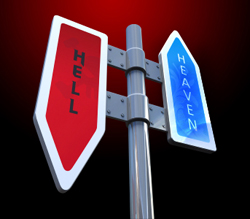It is once again that time of
year when Bishop Dennis J. Sullivan,
as spiritual leader of the Diocese of Camden,
makes an appeal for our help with the various ministries and programs of the
diocese. The operation of a diocese is very much like the
operation of any parish, only on a much larger scale. Essentially,
we—as a parish or as a diocese—can only do the things that our
financial means allow. We depend on the generosity of our parishioners to
support both.
Last year, since we were in the
midst of our parish capital campaign we did not make a direct appeal on behalf of the House
of Charity-Bishop's Annual Appeal.
Instead the parish goal was contributed from our collected capital
campaign funds.
To give some background, the House of Charity-Bishop's Annual
Appeal has been made in the Diocese of Camden
since 1964—for 53 years now! So it really should come
as no surprise to any of us. The theme for 2017 is: Encounter
the Living God. Thankfully, there are those among us whose financial
means enables them to make a most generous gift. I am extremely grateful
for what they can do. However, so much of our financial resources often
comes from the regular, sacrificial giving of the average parishioner
or family. The many small gifts actually
amount to something quite substantial!
How do we benefit as a parish from this appeal and where does
the money go? Please be aware that the salary for the hospital
chaplain at Shore Medical Center (and
the other hospitals throughout the diocese) is paid through the House of
Charity. Included with the various Catholic charities, money goes to the
education of seminarians, the residence for our retired diocesan priests, various
special education needs, Hispanic ministry, Vitality
Catholic Healthcare Services, and many others. Moreover, if we reach this year’s goal, we
will receive 10% of what is collected for use within our parish itself.
How much should I give?
The
Diocesan office suggests the following:
Please consider donating 1% of your
income to support the Church in Southern New Jersey through the House of
Charity.
Last year’s average gift to the House
of Charity – Bishop’s Annual Appeal was $330. Please know that every gift, no
matter the amount, can and will make a difference. The reality is that some of
your fellow parishioners will not be able to financially support the appeal
this year. If you are not doing so already, would you please consider a gift of
$1 a day or $365, or more, to make up for those who cannot give this year?
So, on behalf of our diocese and
our bishop, I humbly ask for your assistance with this appeal. As my
parishioners, you know that I don't feel comfortable asking for
money. However, there are too many people who will undoubtedly benefit
from our financial gifts and sacrifices.
I appeal to your generosity on their behalf.
Fr. Ed Namiotka
Pastor



















